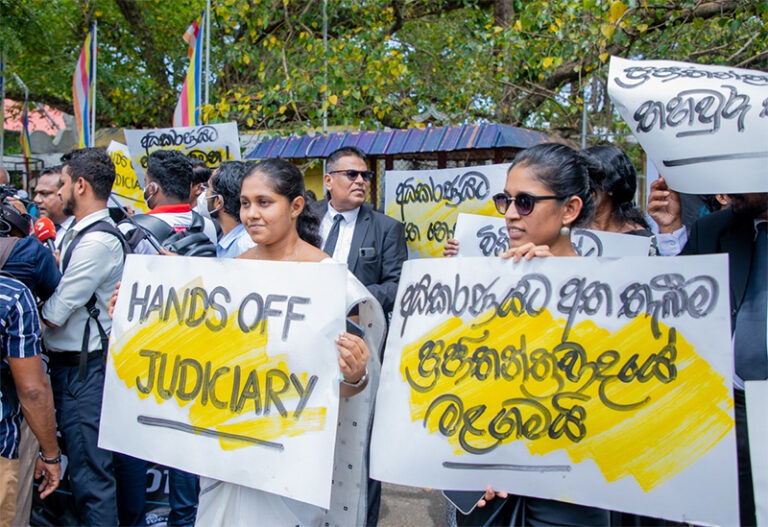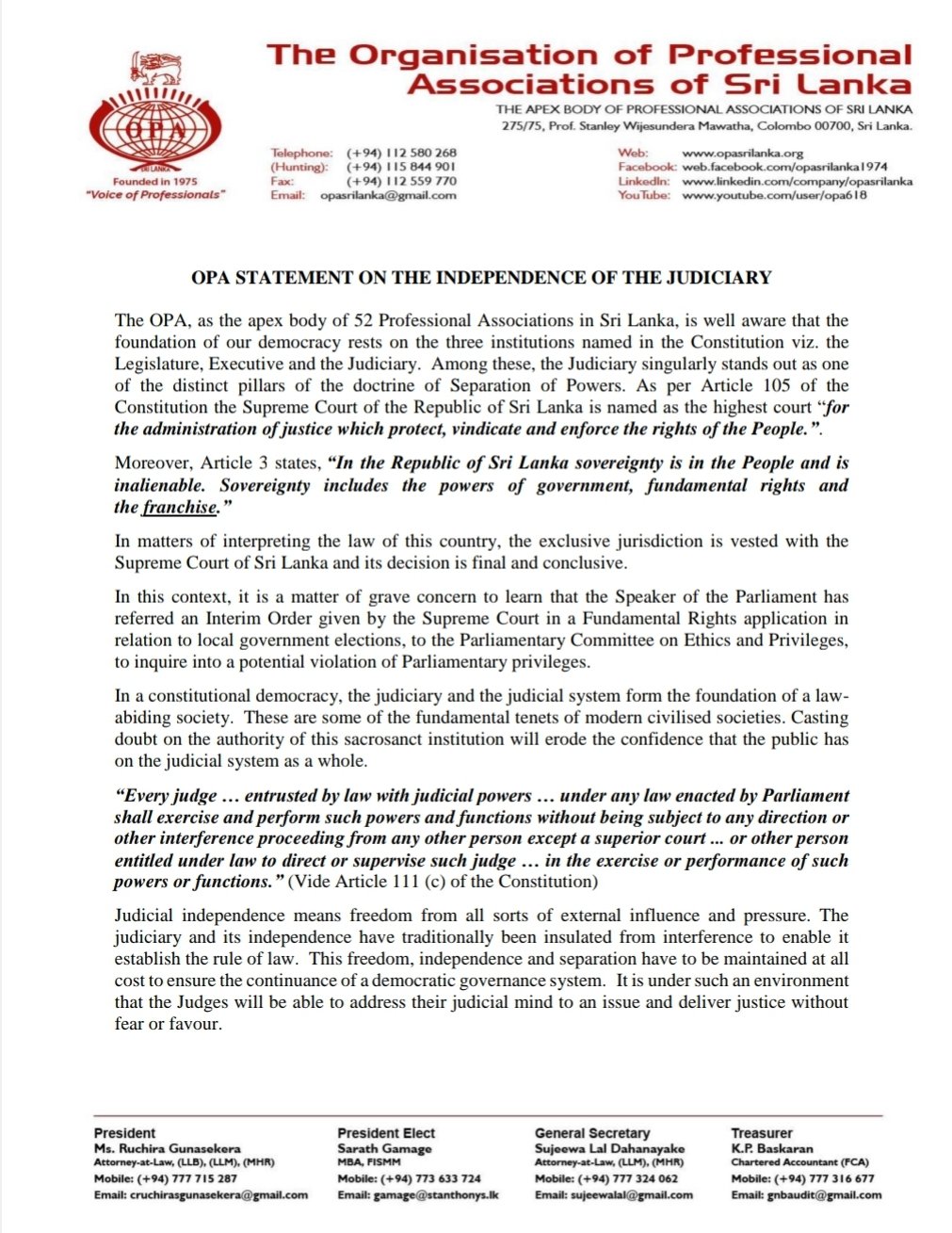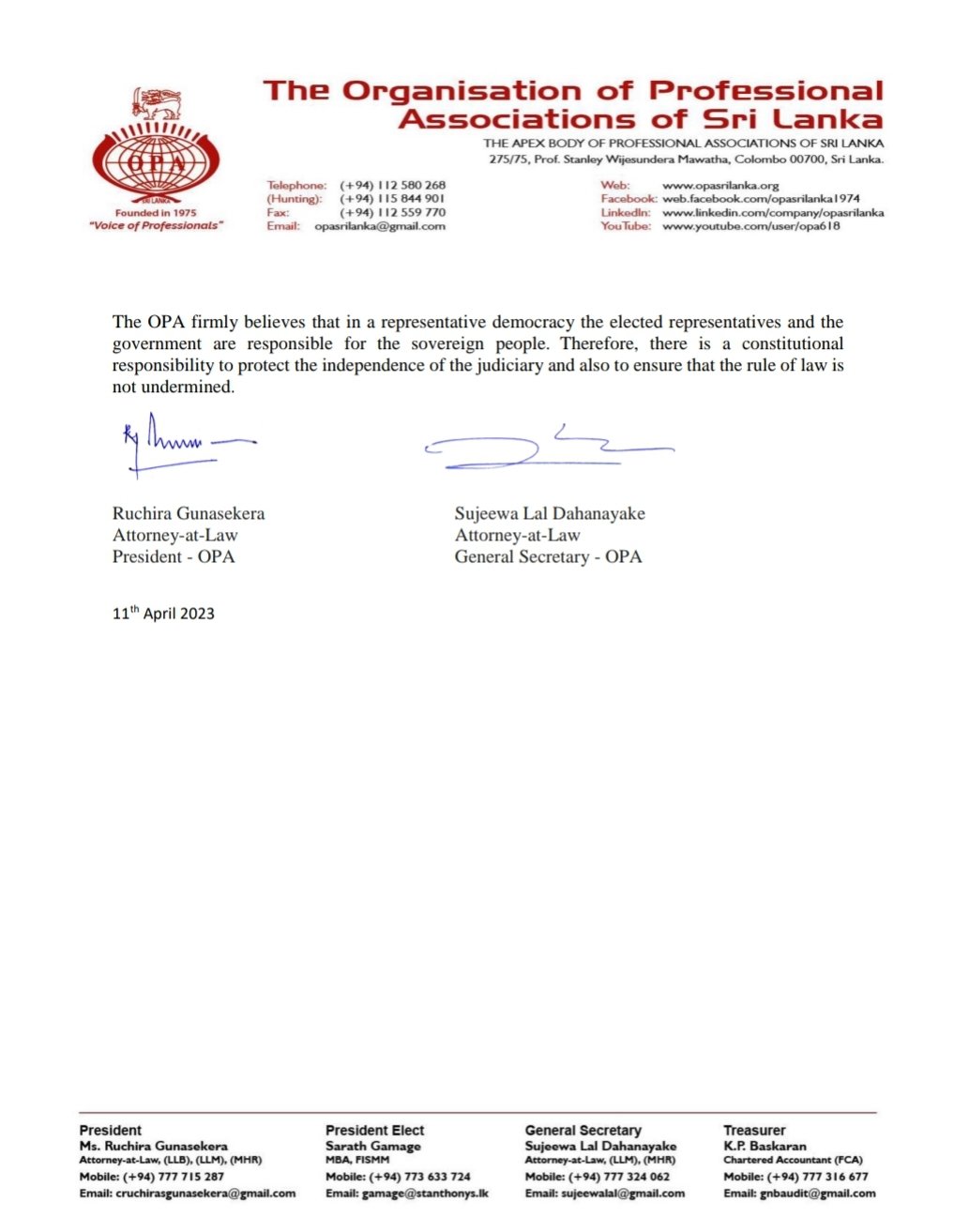The OPA, as the apex body of 52 Professional Associations in Sri Lanka, in a statement yesterday stressed that there is a constitutional responsibility to protect the independence of the Judiciary and also to ensure that the rule of law is not undermined.
Following is the full statement issued by OPA President Ruchira Gunasekera and General Secretary Sujeewa Lal Dahanayake.
The foundation of our democracy rests on the three institutions named in the Constitution viz. the Legislature, Executive and the Judiciary. Among these, the Judiciary singularly stands out as one of the distinct pillars of the doctrine of Separation of Powers. As per Article 105 of the Constitution the Supreme Court of the Republic of Sri Lanka is named as the highest court “for the administration of justice which protect, vindicate and enforce the rights of the People.”
Moreover, Article 3 states: “In the Republic of Sri Lanka sovereignty is in the People and is inalienable. Sovereignty includes the powers of Government, fundamental rights and the franchise.”
In matters of interpreting the law of this country, the exclusive jurisdiction is vested with the Supreme Court of Sri Lanka and its decision is final and conclusive.
In this context, it is a matter of grave concern to learn that the Speaker of the Parliament has referred an Interim Order given by the Supreme Court in a Fundamental Rights application in relation to Local Government elections, to the Parliamentary Committee on Ethics and Privileges, to inquire into a potential violation of Parliamentary privileges. In a constitutional democracy, the Judiciary and the judicial system form the foundation of a law-abiding society. These are some of the fundamental tenets of modern civilised societies. Casting doubt on the authority of this sacrosanct institution will erode the confidence that the public has on the judicial system as a whole.
“Every judge … entrusted by law with judicial powers … under any law enacted by Parliament shall exercise and perform such powers and functions without being subject to any direction or other interference proceeding from any other person except a superior court … or other person entitled under law to direct or supervise such a judge … in the exercise or performance of such powers or functions.” (Vide Article 111 (c) of the Constitution)
Judicial independence means freedom from all sorts of external influence and pressure. The Judiciary and its independence have traditionally been insulated from interference to enable it establish the rule of law. This freedom, independence and separation have to be maintained at all cost to ensure the continuance of a democratic governance system. It is under such an environment that the Judges will be able to address their judicial mind to an issue and deliver justice without fear or favour.
The OPA firmly believes that in a representative democracy the elected representatives and the Government are responsible for the sovereign people. Therefore, there is a constitutional responsibility to protect the independence of the Judiciary and also to ensure that the rule of law is not undermined.
Daily FT’


